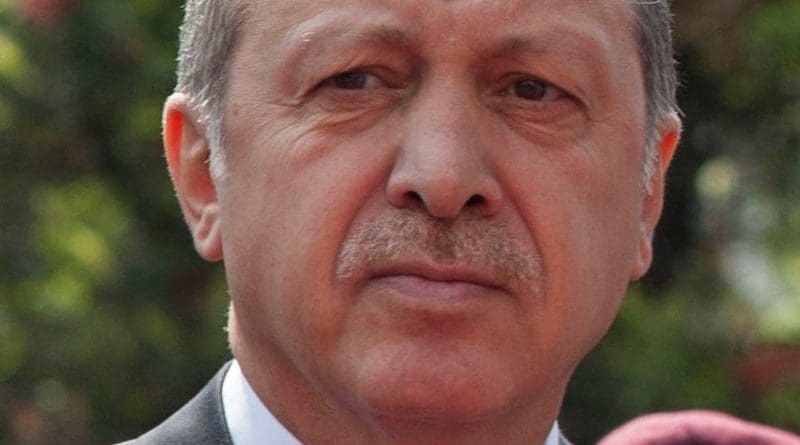Turkey At The Crossroad On Syria – OpEd
Five years after boldly calling for the ouster of neighboring Syria’s president, the Turkish President Erdogan now faces tough choices: either continue with the hitherto futile effort to reshape Syria to his liking, which has resulted in serious national security headaches for Turkey in addition to a tsunami of refugees, or he can make a timely adjustment of ‘back-to-the-past’, i.e., to the pre-2011 pattern of good neighborly relations with Syria based on mutual respect for each other’s sovereignty and secure borders.
At the moment, however, the Turkish policy oscillates uncomfortably between the two approaches, resulting in sheer incoherence. Thus, whereas on the one hand the Turkish foreign ministry has been sending signals to Damascus regarding a new rapprochement, on the other hand Mr. Erdogan persists with his dream of regime change and utilizing the proxies, who are completely on the defensive and have clearly lost the initiative in Syria, to achieve this ‘mission impossible’. Should Erdogn continue on this bifurcated approach, then he risks losing the recently-gained peace with Russia and alienating Iran, which has strategic interests at stake in Syria.
Indeed, what can make of Erdogan’s recent bold statement that the purpose of Turkish presence in Syria is to topple the regime in Damascus? Perhaps this is news to Turkey’s own generals pushing Operation Euphrates Shield, launched in August, ostensibly to defeat the ISIS, push the Kurdish YPG (People’s Protection Units) east of the Euphrates and set up a buffer zone along its border. Perhaps Ergdoan is a little bit like Trump, who claims to know more than the generals.
But, in reality, with the continued advance of Syrian government forces in Aleppo, making it all but a fait accompli, the impressive advances of Damascus, backed by the trio of Russia, Iran, and Hizbollah, are tantamount to a ‘game changer’ that sooner or later Mr. Erdogan must reconcile himself with, unless he wants to risk Turkey’s national interests and act as a Saudi vessel; concerning the Saudis, even the Economist has agreed that after a whole year of bombast, the Saudis are on the retreat and can ill-afford, financially speaking, to bankroll a failed gambit in Syria.
Assuming that Aleppo will be recaptured by the central government in the near future and the foreign governments including Turkey who bankrolled the rebels refrain from their destructive policies and come to terms with Damascus, which must itself open up and be more inclusionary if it is to survive, then chances are we are on the cusp of a badly-needed peace and tranquility in war-torn Syria.
Of course, a great deal of leg work will be needed by Iran and Russia to assure the rest of the region and the world that they harbor no expansionist objectives by winning in Syria, and that they are committed to a genuine political transition in Syria promising the political integration of dissatisfied groups, otherwise the furnace of war will keep going, particularly if the Trump administration makes the fateful, and terribly wrong, decision of arming the Syrian rebels with anti-aircraft missiles, as pushed for by the US Congress. Arming al-Qadea affiliates with this weapons, which can be turned against US and its allies in the future, simply is insane and, yet, there are enough hawks in US Capital these days to reach this objective.
As for Mr. Erdogan, he ought to realize that a strong central government in Damascus is in fact that best guarantee for the country’s territorial integrity and lack of break-up along ethnic lines, and the sooner he comes to this conclusion, the better.

